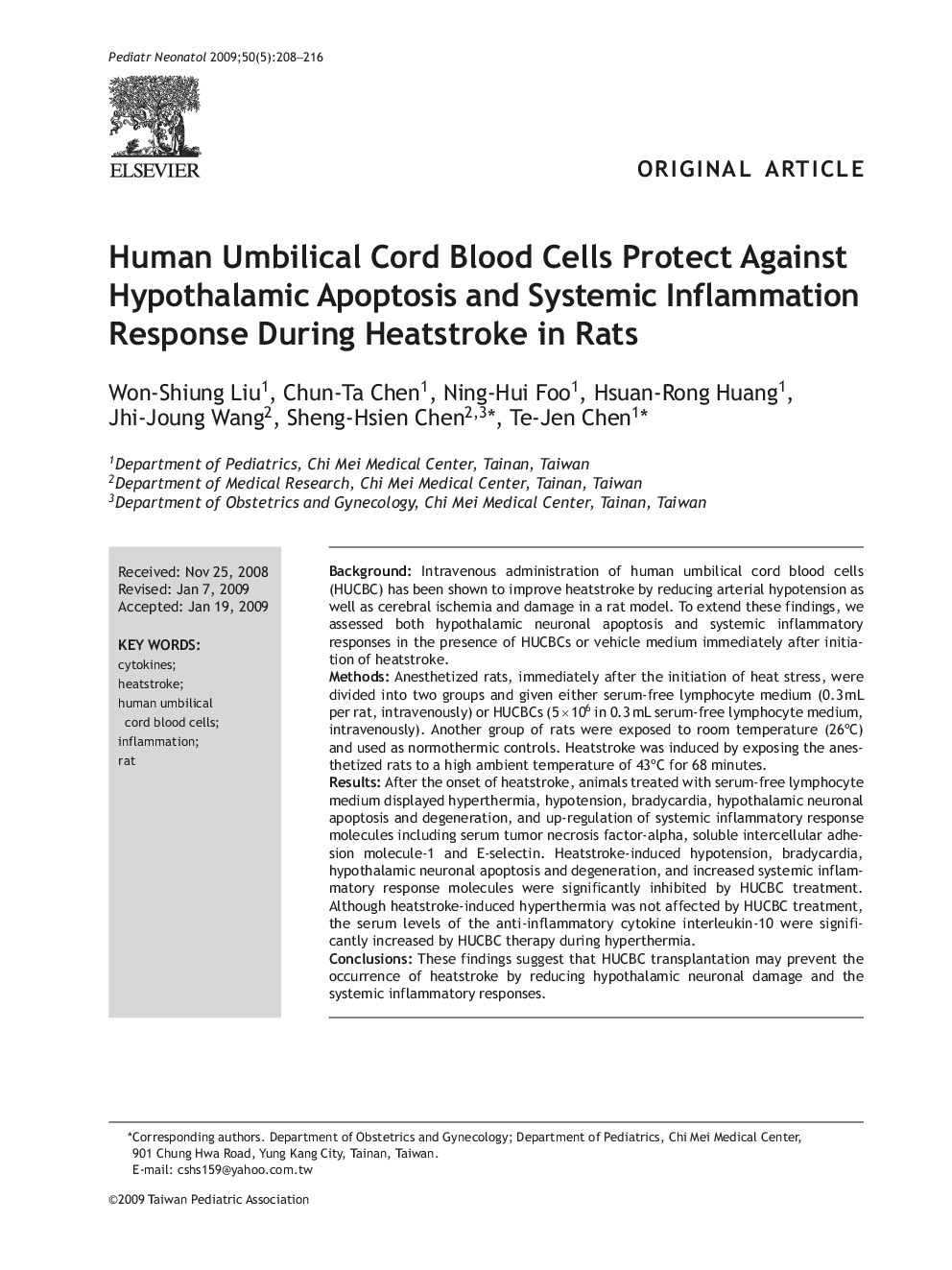| Article ID | Journal | Published Year | Pages | File Type |
|---|---|---|---|---|
| 4175571 | Pediatrics & Neonatology | 2009 | 9 Pages |
BackgroundIntravenous administration of human umbilical cord blood cells (HUCBC) has been shown to improve heatstroke by reducing arterial hypotension as well as cerebral ischemia and damage in a rat model. To extend these findings, we assessed both hypothalamic neuronal apoptosis and systemic inflammatory responses in the presence of HUCBCs or vehicle medium immediately after initiation of heatstroke.MethodsAnesthetized rats, immediately after the initiation of heat stress, were divided into two groups and given either serum-free lymphocyte medium (0.3 mL per rat, intravenously) or HUCBCs (5 × 106 in 0.3 mL serum-free lymphocyte medium, intravenously). Another group of rats were exposed to room temperature (26°C) and used as normothermic controls. Heatstroke was induced by exposing the anesthetized rats to a high ambient temperature of 43°C for 68 minutes.ResultsAfter the onset of heatstroke, animals treated with serum-free lymphocyte medium displayed hyperthermia, hypotension, bradycardia, hypothalamic neuronal apoptosis and degeneration, and up-regulation of systemic inflammatory response molecules including serum tumor necrosis factor-alpha, soluble intercellular adhesion molecule-1 and E-selectin. Heatstroke-induced hypotension, bradycardia, hypothalamic neuronal apoptosis and degeneration, and increased systemic inflammatory response molecules were significantly inhibited by HUCBC treatment. Although heatstroke-induced hyperthermia was not affected by HUCBC treatment, the serum levels of the anti-inflammatory cytokine interleukin-10 were significantly increased by HUCBC therapy during hyperthermia.ConclusionsThese findings suggest that HUCBC transplantation may prevent the occurrence of heatstroke by reducing hypothalamic neuronal damage and the systemic inflammatory responses.
